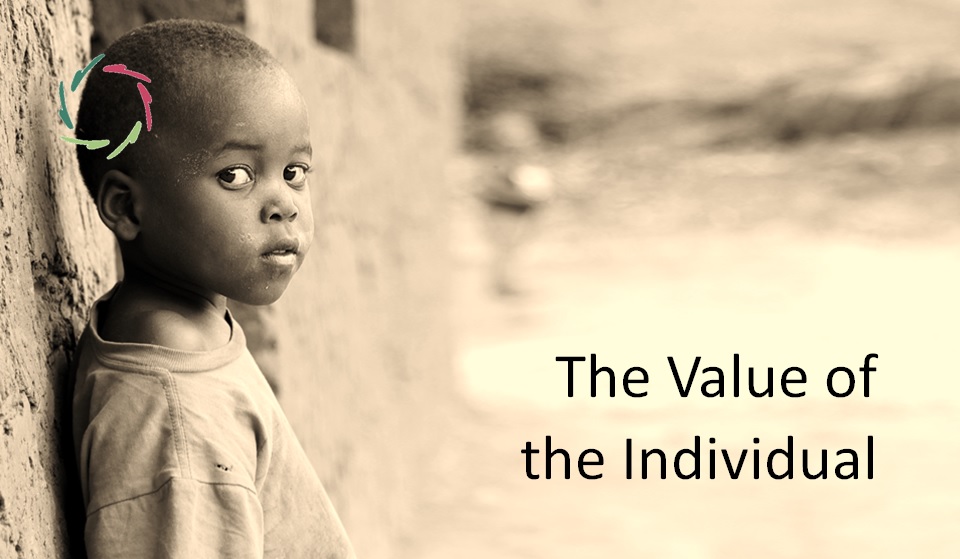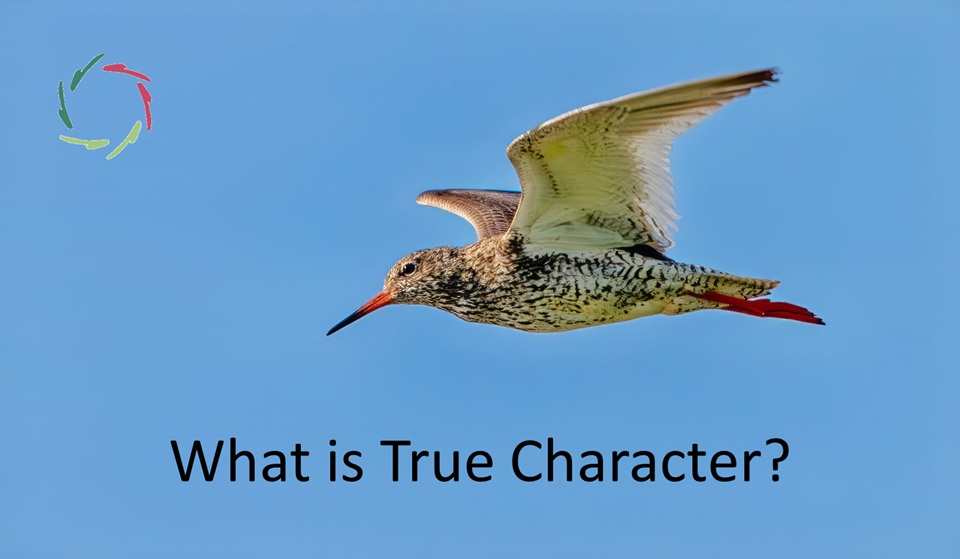The Value of the Individual

Since the world is becoming a village, and people (many individuals) need to live together in this village, we should tackle this issue urgently and adequately to keep things viable.
[I’m not an expert in cultural science. This text contains some self-made insights, which I can easily debunk with counterexamples. So, this is an unfinished take on things. Moreover, much of it may only live in cultural perceptions of what ought to be rather than what is.]
AURELIS
In AURELIS terms, the individual is the un-divided total self, including non-conscious mental processing. Of course, ‘un-divided’ and ‘total self’ are not 100% attainable. Nevertheless, one can strive toward them with much common sense.
The excellence is in the striving.
This stands in contrast with much of Western individualism.
In the time of nascent Western enlightenment – say, around 1770 – little to nothing was known about mental non-conscious processing as we know at present from mind/brain research, although much less in other science, even in the humanities.
Even more in progressing modernism, for instance, the individual in the West was/is rather constrained to what one may call the ego, or even mere-ego. Individualism – frequently approached as an element of liberalism –thereby gets the connotation of egoism, even in the West, and even more so as seen from the viewpoint of some other cultures. Liberalism in overdrive is seen as liberty of ego from anything meaningful, heading for evermore superficiality. The result: mounting tensions globally, additionally fueled by the anxiety of omnipresent inner dissociation. With trepidation, I fear this tale has barely started.
Beyond ego in different cultures
In my view, different cultures have formed different answers to the ‘challenge of the ego.’ They sense that the latter cannot be the end of the story. Perhaps most importantly, exclusive attention to the ego at the detriment of the total self puts pressure on the feeling of deep meaning. No wonder we have been gliding into a meaning crisis. On the other side, the ego is always around the corner in any culture, ready to disguise itself and take over.
These are several cultural attempts to get beyond ego:
- In historical Russia (and the communist USSR), the primary entity of value is/was not so much the individual as it is the state. Thus, many individuals can be readily sacrificed for the state along the lines of ‘good morality.’
- In the historically Christian West, the primary entity of value is ‘God,’ as to the first Christian commandment: “Above all, honor/believe in/love one God.” Only the second commandment is about people. Thus, people can readily (or used to) go to monasteries, devoting their lives to God. They can (or used to) also readily quasi annihilate other cultures in His name.
- In Islam, the primary entity of value is Allah, ‘the greatest.’ Thus, in extreme circumstances, people can readily blow themselves and others up in the name of Allah.
- In China, the primary entity of value is the family or broader group. Thus, people can readily work extraordinarily hard for the benefit of the group, sometimes in disregard for others.
- In Buddhism, the primary entity of value is Buddhahood. Thus, people can readily meditate on a cushion for weeks or years to get closer.
- In AURELIS, as said, the primary entity of value is the total person ― also being the one who can deepen and be deepened by any culture. Thus, in overlap with other total persons and properly supported, people can readily strive for a state of Compassion.
Does this make sense to you?
With all due respect for different cultures, I think the future will eventually converge, through the power of Compassion, to the ones that respect the total person in rationality and depth. No arrogance intended, for sure 😊. Also, no disrespect for any cultural values. Collective values will in this direction be honored not in competition with individual values, but precisely through them. Competition between the collective and the individual will never do, and always again lead to violent struggles. Even superficial consensus-seeking between collectivist and individualist parties is not enough to make the day for the future.
Some arguments for the validity of this evolution at least seem to have objective worth:
- The ego as such is not, nor has ever been, a viable center of value. There is no sense of value or meaningfulness coming from the mere-ego. One proof of the matter is that you cannot purely consciously decide to change your values. At most, you can look for argumentations that profoundly touch you ― which, of course, is laudable.
- What we usually mean by ‘suffering’ is not nation-based, nor any-God-based or conceptual idea-based. Only human individuals genuinely suffer. Even if a group ‘suffers,’ it’s about the suffering of that group’s elements (persons). Groups by themselves are abstract entities that cannot suffer.
- The same with mental growth. A culture can develop and grow richer indeed, very much so. Yet, if no individuals benefit from this, then it’s worth exactly nothing.
One additional challenging question: Would any super-individual entity – God, nation, anything – make any sense without meaningfulness?
That begs the question of where meaningfulness comes from. I have only one answer: the ‘total person’ in the sense of an immensely complex and deep entity. A human being (individual) has this characteristic. There may be other examples in the universe. Until now, the human being (individual) is the only known example. As such, we (total persons) can project our meaningfulness into anything. That makes the matter very simple in the end:
There is no meaning without a meaning-giver.
And without meaning, there is no value.


